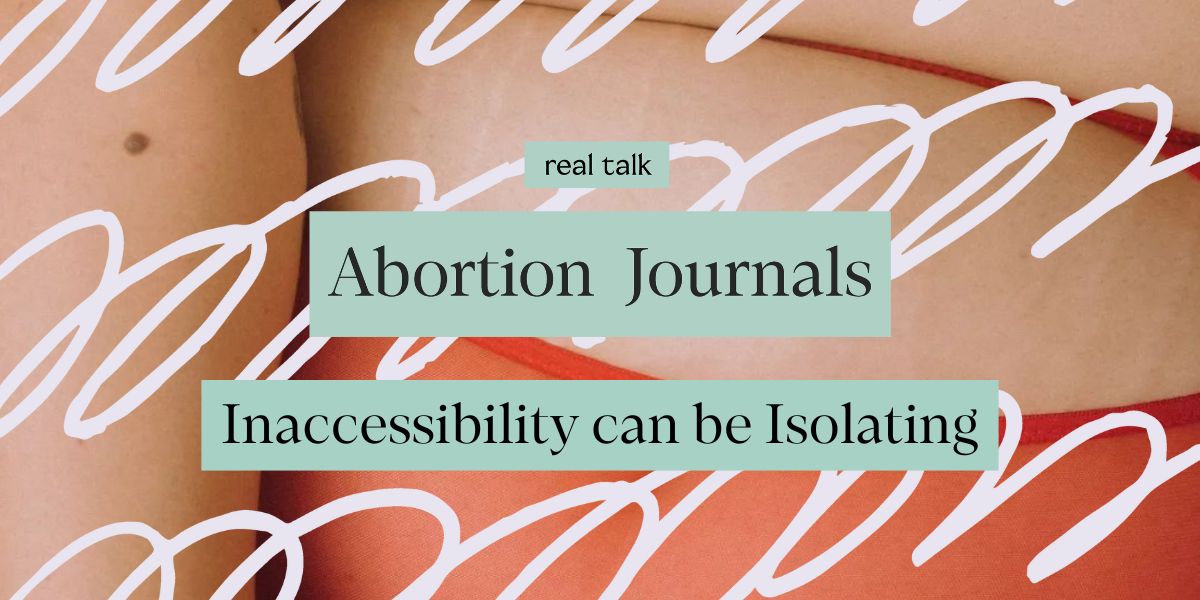In My Words: Why my dog gets better care than I do

A note from the author:
I am not a doctor or a nurse. In fact up until 2 years ago, I couldn't step into a hospital without a heart rate shooting up with anxiety.
In many ways, I am just a patient. I have survived a debilitating illness as a woman. I have navigated the hell that is the US healthcare system. I have learned how to use my own voice to advocate for myself.
I also happen to be the co-founder of this amazing community. From you, I have heard thousands of stories and uncovered new elements of care. I have had the privilege of creating the best vaginal & reproductive health products based on what you need, and now sharing information and stories to help you take control of your health.
I want to use my voice to advocate for you, too. So that’s what I’m going to do here. I will continue to share my stories and research to uncover ways we can create a better future together.
When I finish calls with investors or our retail customers, I always pull up a slide that says “let’s build the future of women’s healthcare, together”. Join me. Let’s do this.
My dog gets better care than I do.
This week, my dog, Jake, snuck his way into some Advil. I rushed to the Vet ER, where after waiting for 5 minutes, he started to receive treatment.
It took the vet an hour to clear a critical case. During this time, a nurse gave us an update every 20 minutes. Jake was doing well, his spirits were high, the vet was on the phone consulting poison control.
After an hour, the vet pulled up a seat next to us. He walked me through the treatment plan and every possible scenario. He answered every question and never glanced at his watch, even though it was 3 in the morning.
Jake spent 48 hours in the hospital. Every few hours, a doctor would call me with an update. Labs are good, Jake’s getting lots of treats, no adjustments to the protocol.
24 hours after Jake came home, we went to his normal vet for one final check. The vet opened the door to a barking dog, covered his shoulder in peanut butter, and sat on the floor. Dr. Richard put treats around his seated body to encourage my anxious dog to approach him for an exam. It took Jake 10 minutes to warm up, but eventually, we were able to do the exam without a muzzle.
Jake received amazing treatment from these doctors. But more than that, Jake received care.
On the other hand, I feel like I’ve seen the underbelly of the U.S. healthcare system. After getting suddenly and mysteriously ill in April 2020, I spent two years bouncing from specialist to specialist, hospital to hospital, state to state. I would swing between being ignored to having to undergo every diagnostic procedure under the sun – neither of which proved useful.
This is not the fault of providers who I’ve seen save my, and countless other, lives. This is the system.
At the animal doctor, I put down my credit card. My family was the customer and the patient, all at once. At the human doctor, I am not the customer. Health insurance companies are.
Hospitals are a business, and private health insurance companies account for over half of their revenue. Hospitals, and the insurance companies behind them, want to incentivize doctors to conduct tests, procedures, and surgeries— because they drive money. Answering an extra two minutes of a patient's questions does not drive money. In fact, doctors today spend less than 20 minutes with a patient. During that time, patients are often only talking for 5 minutes.
That’s why doctors who specialize in areas with high rates of procedures (like cardiology, gastroenterology, and urology) make twice as much money as the doctors taking care of our children and our brains (pediatrics, neurology, and family medicine).
Our hospitals owe it to us to push back on health insurance companies. We deserve a system that prioritizes preventative care, not just reactions.
Next time I come down with the flu, you better believe I’m going to try to call my vet.
REF:QUIZ










